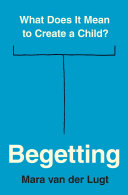

Most ebook files are in PDF format, so you can easily read them using various software such as Foxit Reader or directly on the Google Chrome browser.
Some ebook files are released by publishers in other formats such as .awz, .mobi, .epub, .fb2, etc. You may need to install specific software to read these formats on mobile/PC, such as Calibre.
Please read the tutorial at this link: https://ebookbell.com/faq
We offer FREE conversion to the popular formats you request; however, this may take some time. Therefore, right after payment, please email us, and we will try to provide the service as quickly as possible.
For some exceptional file formats or broken links (if any), please refrain from opening any disputes. Instead, email us first, and we will try to assist within a maximum of 6 hours.
EbookBell Team

5.0
48 reviewsMost of the time, when we talk about whether to have children, what we are really talking about is whether we want to have children. Van der Lugt shows why this is not enough. To consider having children, she argues, is to interrogate our own responsibility and commitments, morally and philosophically and also personally. What does it mean to bring a new creature into the world, to decide to perform an act of creation? What does it mean to make the decision that life is worth living on behalf of a person who cannot be consulted? These questions are part of a conversation we should have started long ago. Van der Lugt does not ignore the problematic aspects of procreation—ethical, environmental and otherwise. But she also acknowledges the depth and complexity of the intensely human desire to have a child of our own blood and our own making.